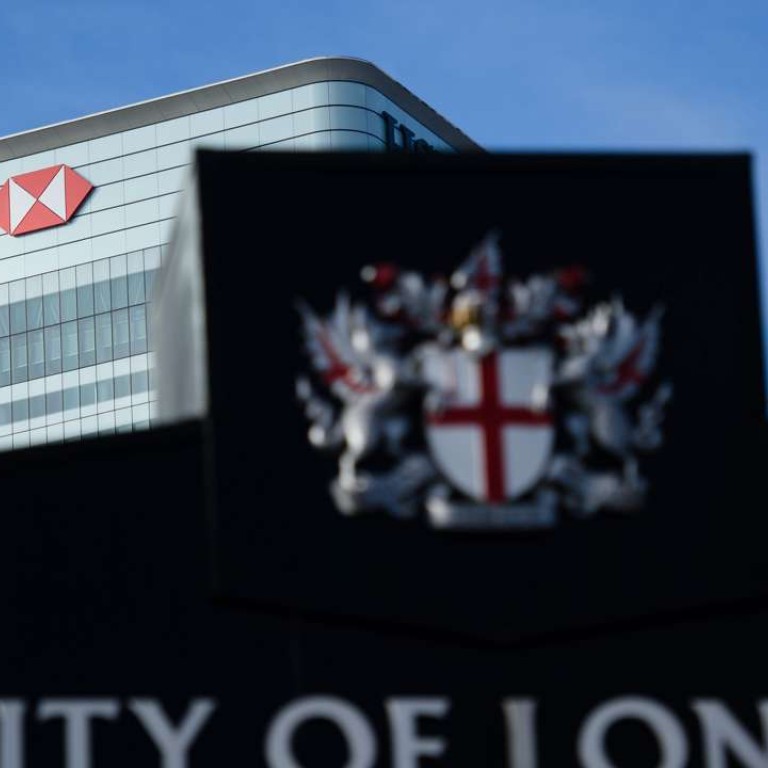
Brexit is perfect illustration of modern corporate complacency
Might HSBC’s Douglas Flint and his board be (re)packing their desks for Hong Kong, or Paris?
If ever there was an event lying bare the complacency and hubris of big companies it was seen in the wake of last week’s referendum over Britain’s exit from the European Union.
Perhaps we can ignore the panicky global response in financial markets because markets inevitably panic in the face of uncertainty. Almost always they overshot in one direction and then overshot back in the other.
But what about the response from major corporations that pride themselves on possessing both business competence and political intelligence, yet were seemingly taken unawares by the consequences of the vote.
Maybe they believed their own propaganda, as expressed in a letter signed by over 1,200 CEOs, including more than half of the leaders from companies in the FTSE 100 who, on the eve of the poll, that warned voters not to go with Brexit.
Most financial institutions and the serried ranks of the biggest economic think tanks had also aired warnings. They must have assumed that such a consensus of the powerful should ensure that the great unwashed would follow their advice.
Yet they did not, indeed it is arguable that this very consensus of the rich and powerful was part of the reason why a majority of voters opted to ignore them.
Whatever the reasons for this outcome, what we saw was a classic example of how mighty companies leave themselves exposed to far reaching political change because they simply cannot conceive that it will happen.
Big corporations favour the political status quo, not least because it is conducive to their activities.
And big corporations shell out large sums of money in election campaigns to ensure that parties promising to retain the status quo will remain in office.
What we saw was a classic example of how mighty companies leave themselves exposed to far reaching political change because they simply cannot conceive that it will happen
It’s a cozy arrangement and works even in places where governments are not elected, such as in Hong Kong, which has business leaders swarming like flies around the centre of power, sometimes offering jobs to retired officials, sometimes sitting on government committees but at all times confident that current arrangements will not change.
Hong Kong has special experience of major constitutional change that came with the transfer of sovereignty in 1997. Fortunately for business leaders not only was this change predictable but they were given more than a decade to prepare for it.
Mostly this meant simply transferring their loyalty and making a few well-timed investments in the direction of the new masters. This was manageable and much easier to handle than the kind of situation that suddenly became apparent in Britain on the morning of 24 June.

The company in question is, of course, HSBC, which moved its headquarters to London and last year started thinking about coming back, in large part to strengthen its hand in negotiations with the British government over regulatory matters.
HSBC announced its decision to stay in London this year and its chairman, Douglas Flint, declared that the possibility of Brexit, ‘wasn’t a major factor in the decision’.
He was, however, canny enough to warn that should this happen some operations might be moved to Paris, a thought that has now been revived with some urgency.
Yet prior to the UK referendum, HSBC appeared to share the consensus view that nothing would really change and so continuing to base itself in London was the right thing to do.
In fact the bank has form in making judgement calls of this kind.
Douglas Wong’s book about the history of the bank in Malaysia records a remarkably frank recollection from Joe Lever, the manager responsible for operations at the time of the split between Singapore and Malaysia in 1965.
He said that nothing was done to prepare for the split because the bank adopted ‘the usual happy British approach to things: we did nothing because we didn’t know what to do’.
He added, with the kind of hubris that prevails to this day, ‘it turns out that doing nothing was absolutely the right answer’. Right, maybe in the short term but as history shows, HSBC decisively lost its dominant position in both countries afterwards.
Hindsight is a luxury principally enjoyed by armchair commentators.
How much hindsight was needed to understand, however, that despite the views of the biggest companies, a vote to leave the EU, was a distinct possibility.
The exit may well not make a sliver of economic sense but it is quite amazing how many companies made few, if any, contingency preparations for this eventuality.
Who knows how long the current status quo will prevail in Hong Kong? It’s a reasonable question but one that barely bothers the largest corporations in the SAR; does that make sense?
Stephen Vines is a Hong Kong broadcaster, writer and entrepreneur.

